The views expressed in our content reflect individual perspectives and do not represent the authoritative views of the Baha'i Faith.
As a white benefactor of systemic racism and as a Baha’i, I believe I must make a supreme effort to heal the long and slow healing wounds the black community has endured. I believe white people such as myself have to center our efforts on ending what the Baha’i writings say is the most vital and challenging issue facing America: racism.
In 1878, Baha’u’llah, the prophet and founder of the Baha’i Faith wrote: “Every age hath its own problem, and every soul its particular aspiration. The remedy the world needeth in its present-day afflictions can never be the same as that which a subsequent age may require. Be anxiously concerned with the needs of the age ye live in, and centre your deliberations on its exigencies and requirements.”
Baha’u’llah’s response signaled a shift from scriptural knowledge to action-oriented endeavors. This has become the illuminating light in my life and caused my heart to spring into the realm of conscious action — and at this moment in the United States, we can see how action is desperately needed to eliminate racism.
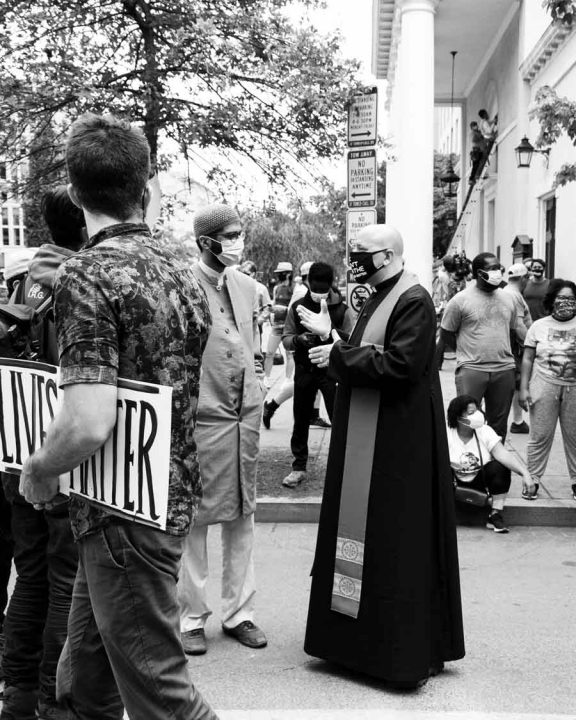
Religion is not solely a theoretical pursuit to be mastered and diffused through one’s analytical aspirations. Instead, it’s a response to the needs of the heart — a heart yearning to feel justice, a heart burning for equity, and a heart weeping for equality.
Systemic racism must have a systemic response. In applying Baha’u’llah’s cure for humanity, our efforts must be integrated with the most relevant spiritual message. In this way, we can remove not only the systemic racial residue that permeates our communities but also eliminate the inherent, subconscious sense of superiority the white community is burdened with.
If we are actually anxiously concerned with the needs of our age, then, naturally our responses will be designed to foster healing. We must be in sync with what our communities are experiencing, and when there is a disconnect, we put a gap between ourselves and a heart desiring justice. As the Universal House of Justice, the administrative body for Baha’is of the world wrote, “Systematization is a necessary mode of functioning animated by the urgency to act.”
What can I do as a white male?
Baha’u’llah wrote: “Incline your ears to the sweet melody of this Prisoner. Arise, and lift up your voices, that haply they that are fast asleep may be awakened.”
I have to ensure I’m awake — and this requires that I constantly work at unlearning racism by relearning history and ensuring it includes the perspective of people who have been intentionally marginalized. This will inform me of how the current system is functioning perfectly to ensure the well being of a select population. As a white male, I must recognize this reality, and amplify the voices and experiences of those who have been targeted by systematic racially segregated systems of injustice.
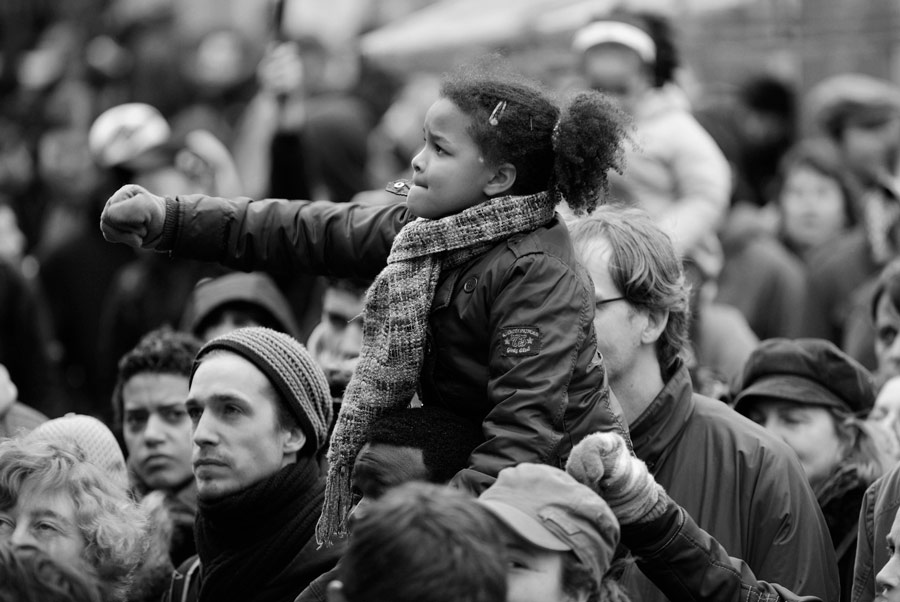
For the past two months, I’ve been participating in a discussion on how to create an environment that’s more welcoming to black Americans and black Bahai’s within the Baha’i community. Because the United States has been systematically constructed for white comfort, it is easy to mimic the dominant narrative of this nation when building new institutions if the black community is not involved; we continue to neglect the experience of populations excluded in the design, so there must be diligence in centering those voices when moving forward with new models of community building.
In 1938, Shoghi Effendi, the Guardian of the Baha’i Faith, wrote clear guidance on the efforts to be made by the white community:
“Let the white make a supreme effort in their resolve to contribute their share to the solution of this problem, to abandon once for all their usually inherent and at times subconscious sense of superiority, to correct their tendency towards revealing a patronizing attitude towards the members of the other race, to persuade them through their intimate, spontaneous and informal association with them of the genuineness of their friendship and the sincerity of their intentions, and to master their impatience of any lack of responsiveness on the part of a people who have received, for so long a period, such grievous and slow-healing wounds.”
Given that guidance, this is my ongoing list of To-Dos and reflections:
- Continue to read and learn about social and racial justice.
- Watch and listen to social justice-related content.
- Get involved in social action, and support social justice organizations.
- Research institutions working for racial equality in my area and get involved. Ask myself, “How can I be of service to others?”
- Get uncomfortable and be willing to air out my subconscious superiority by speaking up, I must remain in a constant mode of learning and stay in the room when my white fragility is screaming to run for safety.
- Support black-run businesses and institutions.
- Know who I’m voting for. Partisan politics has politicized human rights issues, so it’s important to investigate truth for myself, and vote on policies, not political affiliations.
- Be a protagonist striving for racial justice rather than a passive observer. (If you are white, and want to remain comfortable, do nothing, because the system is already set up for these ends.)
Baha’u’llah compared the black community “to the black pupil of the eye surrounded by the white. In this black pupil is seen the reflection of that which is before it, and through it the light of the spirit shineth forth.”
The inability of the white community to even see the suffering black Americans have endured — since 1619 when the first captured Africans landed in what is now Hampton, Virginia, to the current epidemic of intentionally created, enforced, and institutionalized injustice — makes it clear and evident that a system designed to uphold white supremacy is functioning effectively. Cataracts have formed and continue to obstruct our sight to the realities of those long-suffering under the system of white oppression. Quite literally, white gaze.
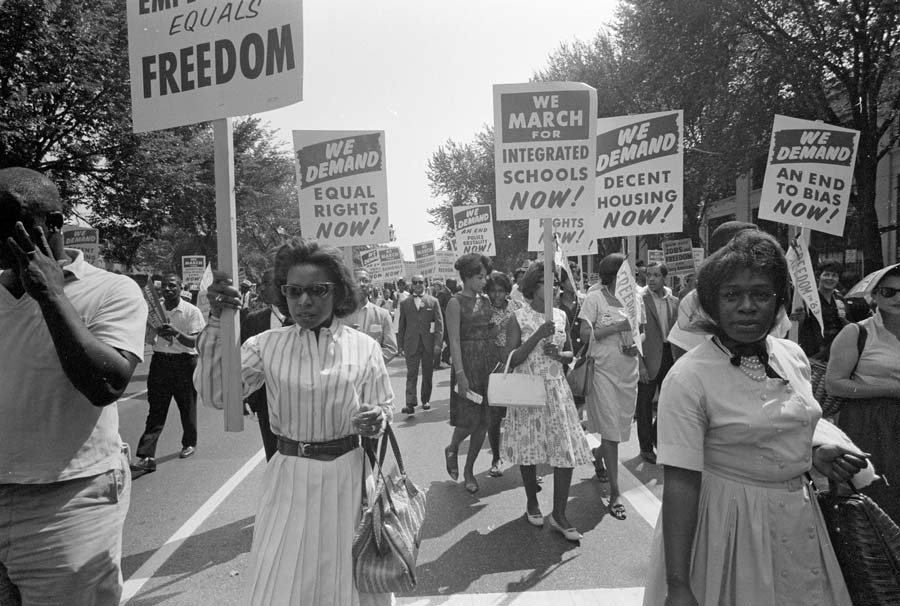
Baha’u’llah wrote that “The well-being of mankind, its peace and security, are unattainable unless and until its unity is firmly established.”
As a white man, I benefit from injustices, even when I’m not aware of it. I have the responsibility to de-center the white gaze and devote myself to establishing systems of justice. When I express both in words and deeds my commitment to “Being anxiously concerned with the needs of the age,” then in any space or institution, my actions will reflect my resolve in centering the Pupil of the Eye: the black community. I must be humble and vigilant in expunging my inherent subconscious sense of superiority, and I owe a debt of gratitude to those relationships who have in the past and will in the future hold me accountable for my thoughts and actions.


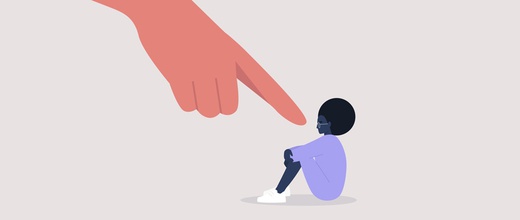


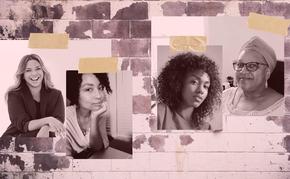

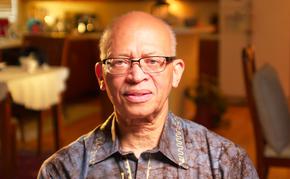









Comments
Sign in or create an account
Continue with Facebookor